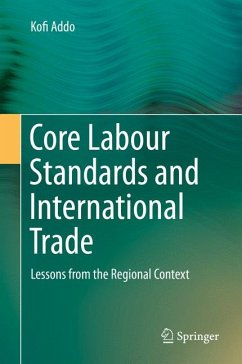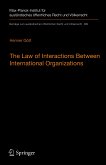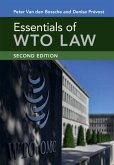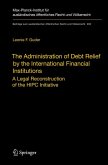The history of the linkage between the Core Labour Standards (CLS) and international trade dates back roughly 150 years, and has recently become one of the most vexing issues facing policy-makers. At the heart of the debate is the question whether or not trade sanctions should be imposed on countries that do not respect the CLS as embodied in multilateral conventions administered by the International Labour Organization (ILO). Concretely, this would entail inserting a social clause in the World Trade Organization (WTO) rules, and would trigger the imposition of sanctions on those countries that do not adhere to the CLS.
Kofi Addo is a policy advisor to the Board of Governors of the International Baccalaureate Organisation. He holds a PhD in law from the University of Bern, Switzerland.
Dieser Download kann aus rechtlichen Gründen nur mit Rechnungsadresse in A, B, BG, CY, CZ, D, DK, EW, E, FIN, F, GR, HR, H, IRL, I, LT, L, LR, M, NL, PL, P, R, S, SLO, SK ausgeliefert werden.









